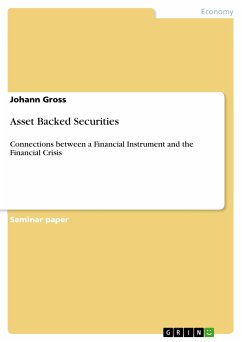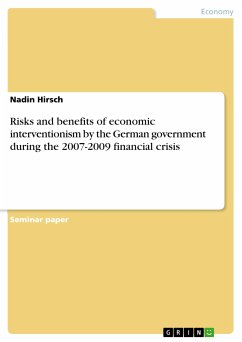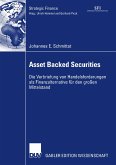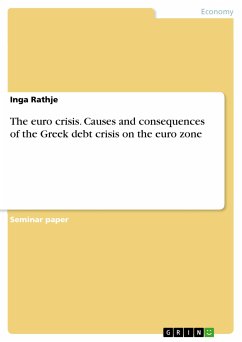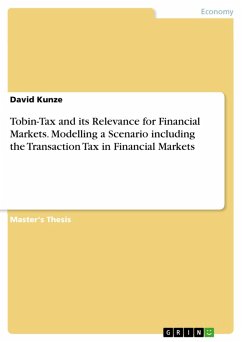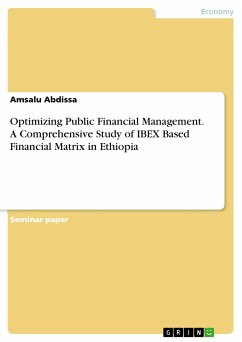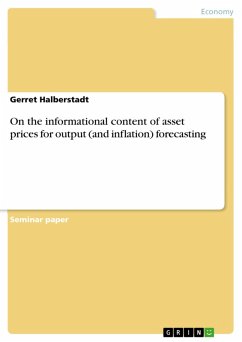Seminar paper from the year 2013 in the subject Economics - Finance, grade: 1,3, University of applied sciences, Nürnberg (IOM), course: Financial Management, language: English, abstract: This paper occupies with asset-backed securities as a financing instrument for companies and as an investment for investors. It shows the advantages of this financing vehicle. Firms can get a quick access to the financial markets and clean up their balance sheet and creditworthiness by selling receivables out of their assets. Investors get a good return on their input and help organizations financing themselves. But heavy risks, like securitization risks, regulatory risks, counterpart risks, economical risks and wrong rating risks can endanger the financial transaction and lead into a financial default. The greed of investment banks, bad economical circumstances and at least a deficient risk management of companies helped ABS products becoming a main role during the financial crisis of 2007. During the financial crisis ABS products lost their natural status as financing instruments and became something like financial investments.

